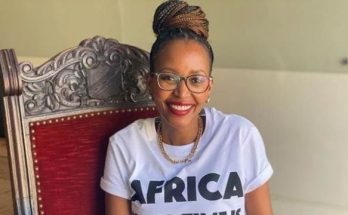1. Tell us a bit about yourself? And, What work do you do?
I am somebody who likes to be doing multiple things at one time – I suspect, because of this, I am not a restful person as I have a lot of energy to expend! As such, I have my feet in many different shoes. First and foremost, I am a dancer and choreographer with FLATFOOT DANCE COMPANY. I am also a lecturer and dance academic at UKZN, and I am also the founder and Artistic Director of the now 23 years JOMBA! Contemporary Dance Experience. I am a serious person and think about FLATFOOT as my family in my ever-on-going journey to find new and inclusive ways to create value, and honour dance making.
2. How long have you been in the industry?
I started dancing when I was 5 years old and it seems to just have been one long journey from there. Professionally, however, FLATFOOT was formed in 1994 so that is 26 years of making dance and training dancers.
3. Has your work always been your passion? Tell us why?
Yes, for me there is nothing more sacred than the liminal human body in motion – challenging all expectations of what is possible. This is a metaphor for life for me – and a chance to rise beyond even what you might think is possible. I often say to the FLATFOOT dancers that we have the intense privilege of confronting all our angels and demons when we make work, of truly finding our humanity in each other when we dance together; to see each other across race, gender, and ability. I hope there is not one day that I take this for granted.
4. Being a woman in the industry – what does it take?
Strangely dance is a profession done by more women than men so you would think this would be a space where women are nurtured and supported. In some cases this is true but research has shown that men are more often favoured for funding, career support, and obtaining commissions in the professional arena. So my advice to women wanting to choreograph, curate and dance, is not to wait around for a hand-up but to find as many opportunities to make work and on all and every platform you can – start small but always commit to the work! And, of course, to ask the sisterhood to hold and support each other and not to drag one another down.
5. What has been the most difficult challenge of your career?
The biggest challenges to being an artist in South Africa in 2021, is, of course, funding and spaces to show your work. COVID has also cut a lot of artists off at the legs and it will be a long time before many recover. Personally, my biggest (and still daily) challenge has been asking people to walk (dance?) with me on this journey of making dance, of finding those bodies and spirits who know the personal cost to be an artist and still do it anyway.
6. What advice do you have for other women in your industry?
I always ask fellow women artists to really support one another, to not fall into mindless subterfuge that allows patriarchy to survive. We are as strong as our community that holds us. I would also ask women to seek out and support other women – especially in space where see inequity and a lack of representation.
7. Plans for the future?
I hope FLATFOOT DANCE COMPANY survives the onslaught of COVID-related loss of work and funding, and if this can happen, I hope to do more of what I am doing now! I want to see JOMBA! hit 25 years in 2023 – this will be a huge milestone, and, I am excited by a generous commission from the Playhouse Company to create a new dance work for their South African Women’s Arts Festival 2021.
For more visit: flatfootdancecompany.webs.com
Lliane Loots lootsl@ukzn.ac.za




